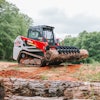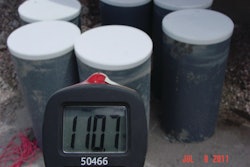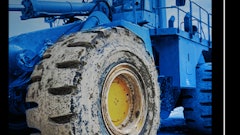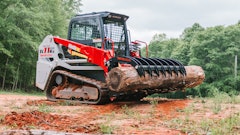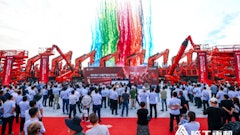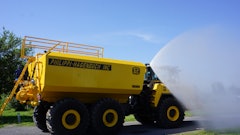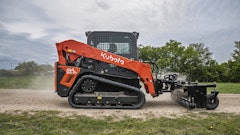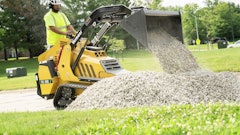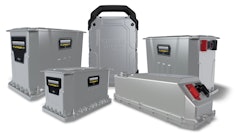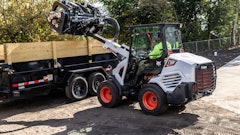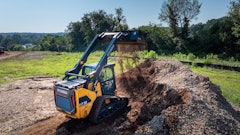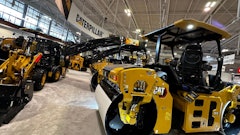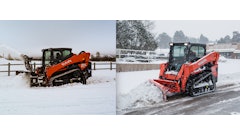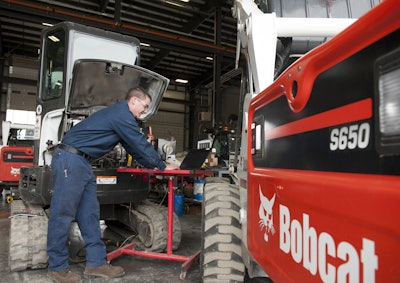
As the rental industry continues to grow, so does the demand for compact equipment, specifically compact excavators. Machine enhancements have made today’s compact excavators more productive, and rental customers enjoy operating these machines because of their performance and versatility in a variety of applications.
Therefore, it is crucial for you as a rental store owner to properly train your rental service department on the general maintenance of compact excavators. By following these six maintenance tips, your rental service department can help expedite equipment turnaround, improve uptime protection and keep your customers working at optimum levels.
Tip No. 1 — Review the manufacturer’s Operation & Maintenance Manual
The first thing your service team should do is familiarize themselves with the manufacturer’s Operation & Maintenance Manual. This allows them to better understand the machine’s safety features, instrumentation, controls, service schedules, maintenance points and much more. Manuals are typically stored in the machine’s cab for quick reference.
Tip No. 2 — Create a planned maintenance schedule
Unplanned maintenance can result in a loss of rental, create higher costs for rental stores and increase service time. According to Dave Wilcox, owner of General Rentals in Frankfort, Kentucky, rental stores should consider creating a planned maintenance (PM) contract to better assess what equipment and tools are needed to keep rental equipment up and running.
“The best way for rental stores to maintain their compact excavators is to implement a PM schedule that is easy to follow and documents all service intervals,” Wilcox says. “Like any piece of compact equipment, scheduled maintenance will extend the life of the compact excavator and save the rental house money over time.”
Recording service intervals allows you and your service team to easily make sure each item is completed weekly, monthly, quarterly or as scheduled.
Tip No. 3 — Inspect fluid levels and filters
Fluids ― including engine oil, coolant, hydraulic fluid, grease and drive motor lubricants ― need to be checked on a regular basis.
“If your service team is using the wrong lubricants, it can lead to expensive and unnecessary repairs,” Wilcox says.
To remedy this, rental stores should match machine fluids to the proper ambient temperatures and to the manufacturer’s recommendations. For instance, synthetic or synthetic-blended oils are formulated with additives that can extend oil change intervals and promote longer engine life. These oils have better cold weather starting and lubricating performance, as well as additional wear protection during high-performance operation.
Fuels should also be assessed at this time. A No. 1 or No. 2 ultra-low sulfur diesel fuel is the most common specification in the industry. No. 2 grades should be used at temperatures above 15 degrees Fahrenheit; however, it is recommended to use a blended or No. 1 diesel fuel and/or anti-gel additives when temperatures drop below 15 degrees Fahrenheit.
Proper fluid and filter increments can be found in the manufacturer’s Operation & Maintenance Manual.
Tip No. 4 — Check the battery
When a rental machine is returned to the store, Wilcox says that your service team should also inspect the battery cables and connections. Today’s compact construction machines constantly draw on the battery, so unless your service team has maintained or disconnected the battery, the battery will slowly run down and will need to be charged before operation.
“Corroded terminals can cause hard starting and charging issues that can negatively affect your rental customers’ experience with your machines,” he says.
Tip No. 5 — Inspect the tracked undercarriage
It is vital to keep compact excavator undercarriages clean to help minimize any material buildup that can contribute to wear. During a visual inspection, Wilcox’s staff will examine wear components to make sure bolts, guiding and rollers are functioning properly.
“Our employees also will complete a full undercarriage inspection for excessive or uneven wear, as well as look for damaged or missing components,” he says. “During a routine machine inspection, we check the tracks to see if any components look out of place or need repairs.”
It is also important to inspect the rollers, idlers and drives for oil leakage. These oil leaks could indicate a failed seal, which could lead to a major failure in the rollers, idlers or track drive motors. Many manufacturers’ idlers and rollers are permanently sealed and lubricated to provide uptime protection and reduce maintenance costs.
If compact excavators are being operated in colder climates, then mud, dirt and other debris may freeze and start to rub on the bolts, loosen the guiding and seize up the rollers. Routine and proper cleaning of the undercarriage helps to prevent unplanned downtime and reduces potential wear later on.
Tip No. 6 — Prepare attachments ahead of time
Attachments are an important driver for renting compact excavators and require the same attention to maintenance as the machine itself. According to Wilcox, his team completes visual checks of the hydraulic hoses, cylinders and guards on the attachments, which can help determine if damage or wear has occurred. Everything that engages with the ground, from bucket cutting edges to planer and trencher teeth for instance, is looked at for wear and damage.
Other maintenance tips, include:
- Operate only those attachments that are approved for use with the corresponding carrier.
- Connect the attachment and operate it briefly to make sure the attachment works properly before it leaves your store.
- Check “attachment specific” fluid levels, and change them as needed.
Maintaining compact excavators is crucial for all rental centers. If compact equipment is not maintained by your rental center, you may be risking needless breakdowns and losing money because the machines cannot be rented to your customers. By following these six maintenance tips, you can increase the uptime of your rental fleet for your customers, which will improve their jobsite productivity and ensure a positive experience with your business.
If in doubt, visit your dealership
If you do not have adequate service training or an on-site mechanic, you should consider partnering with your local dealership for equipment maintenance. Your dealership can create a unique package that can address your maintenance needs and assess key machine features — parts, labor, travel, supplies and lubricants — before servicing your machines.
By working with your dealership, you can ensure scheduled maintenance is performed on time and can help control costs.

